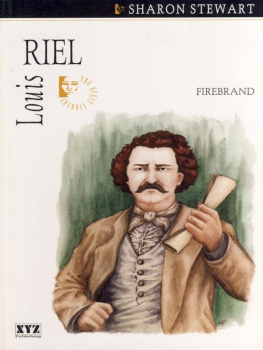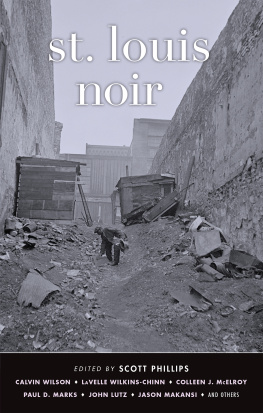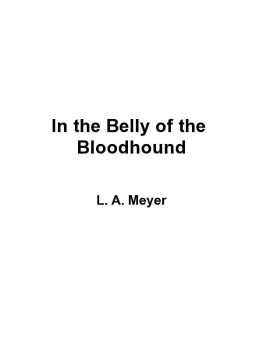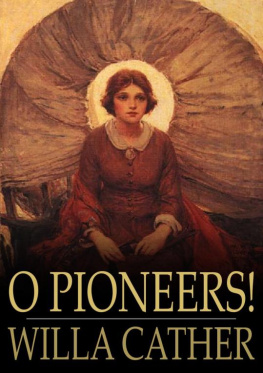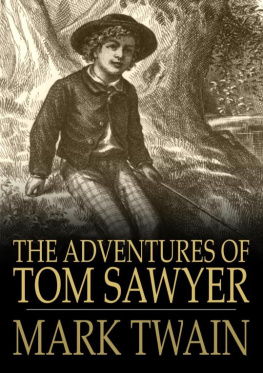Louis Chude-Sokei - Floating in a Most Peculiar Way
Here you can read online Louis Chude-Sokei - Floating in a Most Peculiar Way full text of the book (entire story) in english for free. Download pdf and epub, get meaning, cover and reviews about this ebook. year: 2021, publisher: HMH Books, genre: Non-fiction. Description of the work, (preface) as well as reviews are available. Best literature library LitArk.com created for fans of good reading and offers a wide selection of genres:
Romance novel
Science fiction
Adventure
Detective
Science
History
Home and family
Prose
Art
Politics
Computer
Non-fiction
Religion
Business
Children
Humor
Choose a favorite category and find really read worthwhile books. Enjoy immersion in the world of imagination, feel the emotions of the characters or learn something new for yourself, make an fascinating discovery.
- Book:Floating in a Most Peculiar Way
- Author:
- Publisher:HMH Books
- Genre:
- Year:2021
- Rating:5 / 5
- Favourites:Add to favourites
- Your mark:
- 100
- 1
- 2
- 3
- 4
- 5
Floating in a Most Peculiar Way: summary, description and annotation
We offer to read an annotation, description, summary or preface (depends on what the author of the book "Floating in a Most Peculiar Way" wrote himself). If you haven't found the necessary information about the book — write in the comments, we will try to find it.
Floating in a Most Peculiar Way — read online for free the complete book (whole text) full work
Below is the text of the book, divided by pages. System saving the place of the last page read, allows you to conveniently read the book "Floating in a Most Peculiar Way" online for free, without having to search again every time where you left off. Put a bookmark, and you can go to the page where you finished reading at any time.
Font size:
Interval:
Bookmark:

Copyright 2021 by Louis Chude-Sokei
All rights reserved
For information about permission to reproduce selections from this book, write to or to Permissions, Houghton Mifflin Harcourt Publishing Company, 3 Park Avenue, 19th Floor, New York, New York 10016.
hmhbooks.com
Library of Congress Cataloging-in-Publication Data
Names: Chude-Sokei, Louis Onuorah, 1967 author.
Title: Floating in a most peculiar way / Louis Chude-Sokei.
Description: Boston : Houghton Mifflin Harcourt, 2021.
Identifiers: LCCN 2020023320 (print) | LCCN 2020023321 (ebook) | ISBN 9781328841582 (hardcover) | ISBN 9780358395027 | ISBN 9780358394587 | ISBN 9781328781079 (ebook)
Subjects: LCSH: Chude-Sokei, Louis Onuorah, 1967Childhood and youth. | Nigerian AmericansCaliforniaLos AngelesBiography. | Jamaican AmericansCaliforniaLos AngelesBiography. | ImmigrantsCaliforniaLos AngelesBiography. | Los Angeles (Calif.)Biography. | Nigeria, EasternBiography. | Nigerian AmericansRace identity. | Jamaican AmericansRace identity.
Classification: LCC F 869. L 853 C 47 2021 (print) | LCC F 869. L 853 (ebook) |
DDC 979.4/940049669dc23
LC record available at https://lccn.loc.gov/2020023320
LC ebook record available at https://lccn.loc.gov/2020023321
Cover design by Brian Moore
Cover images Avgust Avgustus / Shutterstock (landscape)and Sweet Art / Shutterstock (brushstrokes)
Author photograph Sharona Jacobs
v2.0121
Portions of chapters Space Oddity and Heroes first appeared, in different form, in Hambone No. 20 published in 2012. Portions of chapters Life on Mars and African Night Flight first published, in different form, in the November 2013 issue of the Chimurenga Chronic.
For Adaorah.
This is where you begin.
In my mother and fathers time, exile would have been the description for people like us. It was a sexy word in some circles. The common terms now are immigrant or refugee. Neither of those have the same appeal. They come laden with a sense of political inconvenience or victimization. And they imply that the place you have come from still exists.
Throughout my childhood, my mother told me that we were from a country that had disappeared or been killed. The murder of our country was a crime she would never forgive because not only had she become a citizen of that country, but she and my father had been partly responsible for its invention. Sometimes our country had been starved to death. Our enemy, the Federal Republic of Nigeria, had identified starvation as a legitimate tactic of war and deployed it against us with some virtuosity. Wed become famous for our hunger, particularly our children, who became celebrities in what many called Africas first televised war. But we werent exiles because nobody owed us anything. We were immigrants because back in my mothers day that term implied that we were needed in whatever country we ended up in.
Nobody felt guilty for our countrys disappearance because it hadnt survived long enough to appear on any official maps. It was more than a rumor but had not become a symbol. A handful of African nations had recognized it, and Israel and a few European countries had supported it without providing official recognition. Though virtually forgotten, there were still traces of our country in the lexicon of global charity. For example, it existed in tragic photos of emaciated babies with swollen heads and stomachs. As I said, wed become famous for our hunger. Images of our children introduced kwashiorkor to the world, a disease so cruel as to be ironic: extreme hunger made the stomach expand enough to suggest gluttony.
We were from Biafra, mind you. Not Nigeria. My mother was emphatic about the distinction. The latter was just a placeholder, a country that was to our real homeland as a scar is to a wound. In other words, it was just like me, as I was to my father who was killed just months before his beloved country was. His death, many said, precipitated the end. Most of what I knew about him when I was a boy came from the endless recollections of those eager to hold on to that almost country. Some say he was its light, its grace, a reason to justify a cultural penchant for song. But when he was gone, all that was left was bloodshed and his people did not sing about death. This was certainly how it was for his family, many of whom were soldiers also; and his village; and his ethnic group, the Igbos. So it was for his wifea Jamaican woman who had migrated to England to help rebuild the colonial motherland after World War II and then migrated again to West Africa just weeks after meeting him.
Nigerians may not have accepted her initially as African, and her husbands people might not have accepted her as Igbo. But Biafra, that was something else. Biafra didnt have the luxury to discriminate within its tender borders, and in it shed been as heroic as any man or any African. And her son, she claimed, was the first Biafra baby. Shed say this even after Id gotten old enough to decide that it was meaningless, since wed left so early in my life. The war was declared on July 6, 1967. I was born just past midnight of that day. Family legend had it that while she was in labor she could hear the first fruits of the federal governments bombing campaign against Biafra, and when shed given birth, there had been word of casualties nearby.
I dont remember Biafra or leaving it. Apparently, all I had with me when I arrived in Jamaica was a song, not an Igbo song but a Western one played on the radio about floating in space and choosing never to come down. It was a song about someone named Major Tom, and it eventually became my only memory of my origins in Africa. My mother told me I first heard it in Gabon, the country wed fled to just before the final collapse when there were too many dead to still call Biafra a country. She said one of the aid workers played and sang the song often, and that it soothed me to sleep. She claimed that the aid workers name was Tom and that he must have been a major like my father, but that stretched credulity.
I remember none of this, but I do remember the first time I heard the word Biafra. It was also the first time I remember meeting an African other than myself.
I must have been five or six years old. My mother had returned to America in the wake of my Jamaican grandmothers death, and Id been adopted by family friends who were members of a rigidly orthodox Seventh-day Adventist community in Montego Bay. The plan was for my mother to send for me once shed established herself in America with work and a home, and had managed all the paperwork necessary for my border crossing. Jamaica is where I began to hunt for that song in order to verify a past before that desperate island.
My first African arrived while I was chasing Cousin Cecil around the backyard with a gun fashioned out of hardened coconut-tree fronds. He had given the fronds to me in trade for the map of a sunken continent Id torn from either a comic book or one of the science fiction novels I had to smuggle into the house because they were forbidden.
Cousin Cecil was the adopted son of the matriarch and patriarch of this home for left-behind children, Big Auntie and Uncle Daddy. Big Auntie was a high-ranking administrator for the Seventh-day Adventist churches on our side of the island. She was as large in physique as she was in authority and volume. She was infamous for her belches, thunderous affirmations of power. Small and wiry, Uncle Daddy was infamous for his wicked laughter, which came even when delivering punishment. He owned and operated a tour bus, a Japanese-made vehicle rare in those days, the pride of the household and their church. Like everyone in a country like Jamaica, Big Auntie and Uncle Daddy were involved in multiple other businesses and schemes to keep their large household afloat. Uncle Daddy was a driver but also a contractor, a builder, a fisherman, a mechanic. Thats why the backyard we were running through was perilous and wonderful, dense with the detritus of his many professional failures and successes.
Font size:
Interval:
Bookmark:
Similar books «Floating in a Most Peculiar Way»
Look at similar books to Floating in a Most Peculiar Way. We have selected literature similar in name and meaning in the hope of providing readers with more options to find new, interesting, not yet read works.
Discussion, reviews of the book Floating in a Most Peculiar Way and just readers' own opinions. Leave your comments, write what you think about the work, its meaning or the main characters. Specify what exactly you liked and what you didn't like, and why you think so.

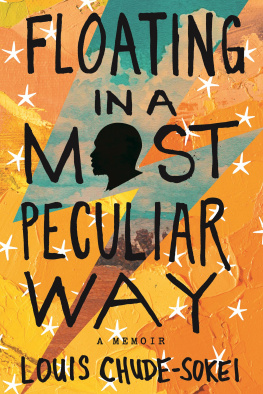


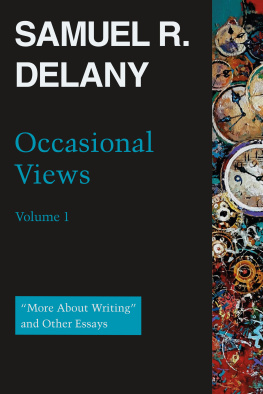


![Louis de Montfort - The Saint Louis de Montfort Collection [7 Books]](/uploads/posts/book/265822/thumbs/louis-de-montfort-the-saint-louis-de-montfort.jpg)
